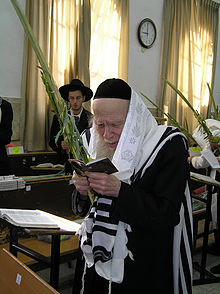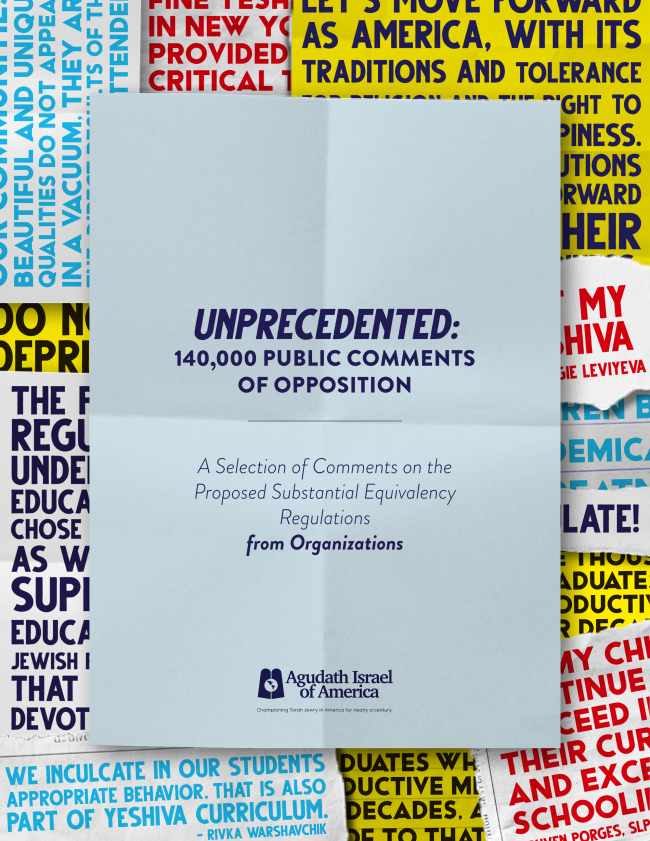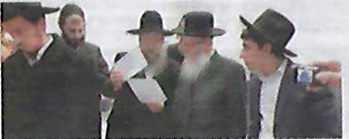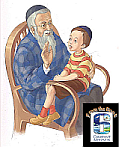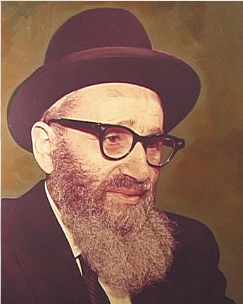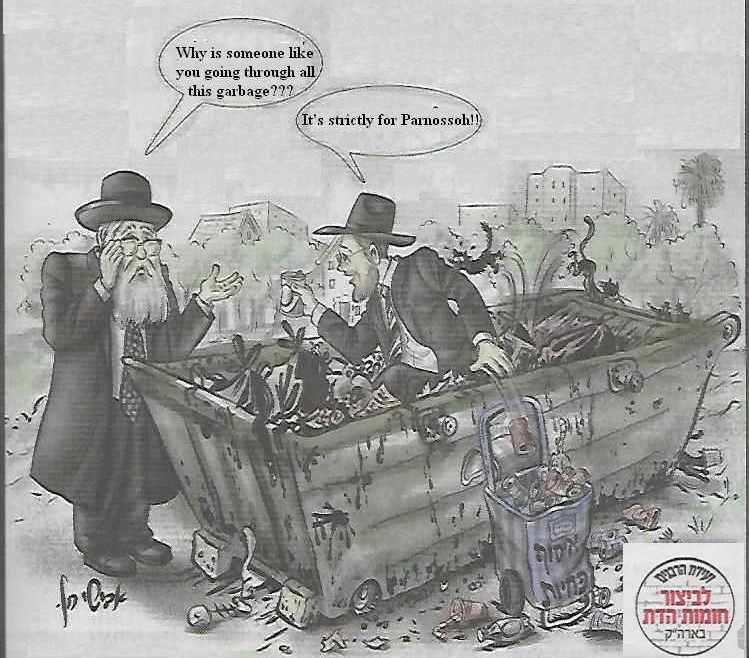  |
|
| |||||
This Google Custom Search looks only in this website. Torah Leaders Thinking About, Understanding and Responding to the Coronavirus
All gedolei HaTorah said that those in Israel should heed the instructions of the doctors and the guidelines of the Israel Ministry of Health to prevent the plague from reaching the Holy Land.
Sar HaTorah HaRav Chaim Kanievsky said, "In these days of Shovevim that have a special segulah to batter Amolek as is mentioned in our parsha (Beshalach) and to separate ourselves from all the tumah of Mitzrayim and the culture of the nations of the world...
On Shabbos, in addition to the general mitzvos of keeping Shabbos as summarized in the commandments Zochor and Shomor, there is a mitzvah of oneg Shabbos. This is learned from the nevi'im, Vekoroso laShabbos oneg - and you shall call the Shabbos oneg — pleasure.
This includes having pleasure on Shabbos in all manner of ways, including having three Shabbos meals that are honored with meat,fish and other delicacies.
Nonetheless, said HaRav Aryeh Finkel zt"l in the talks he gave on leil Shabbos, it does not mean pure pleasure alone, without any purpose or reason.
The New York State Board of Regents met regarding equivalency of instruction in nonpublic schools. Rabbi Chaim Dovid Zwiebel and Rabbi Yeruchim Silber of Agudath Israel of America and other yeshiva advocates were in attendance.
Agudath řIsrael has, for years now, impressed our concerns regarding rigid government oversight and control of our yeshivas upon various decision makers. Last summer, when former Commissioner Elia proposed rigid nonpublic school regulations, the Jewish community came together in a remarkable display of unity, sending an unprecedented 140,000 letters to the Board of Regents during the public comment period.
Thousands of yeshiva students in Yerushalayim were able to register for the Army, in a special procedure for talmidei yeshivos that was set up through the efforts of the Vaad Hayeshivos under he guidance of gedolei Yisroel.
The following ma'amar is a combination of many different shmuessim that were said by Reb Dovid zt"l over the years as the mashgiach in Yeshivas Ner Yisroel in Baltimore. This ma'amar was recently edited and printed together with many other hitherto unpublished shmuessim in two volumes entitled Sichos Chochmah Umussar. This shmuess was chosen to translate and print because of its insight to our present day situation — in particular of the innumerable, seemingly difficult to understand, tragedies that have become commonplace.
Part I
I: Miracles Teach the Majority of the Foundations of Emunah
The Ramban writes in his commentary on the Torah (end of parshas Bo, Shemos 13:16):
"In the times of Enosh, when avoda zorah entered the world, people's understanding of emunah began to become corrupt. Some were kofer be'ikar, claiming the world was not created by Hashem but had always existed. They denied Hashem's existence and claimed that [Divine creation] was an invention [of men's imaginations]. Some questioned whether Hashem is aware of what every individual does. They asked: `How can it be that Hashem knows what will happen in the future or what is happening in the present?' Others admitted that Hashem knows [what each individual does and what will be in the future] but denied hashgocho: `[Hashem] makes men like the fish of the sea' (Chavakuk 1:14) — Hashem does not scrutinize [their deeds], and people are neither punished nor do they receive reward. They argued that Hashem deserted the world [and left it to run according to blind natural law].
"When Elokim desires to choose [i.e. shows good will to] a community or individual and does a miracle for them by changing the world's normal conduct, then everyone understands clearly how mistaken all these ideologies are. The wondrous occurrence shows there is an Elokim in the world, He created and He recreates it [constantly], He knows [everything], scrutinizes [the world], and can do [whatever He wishes]. When the wonder is decreed beforehand by a novi it will furthermore show the authenticity of prophesy — `that Hashem does talk with man' (Devorim 5:21) — and reveals His secret to His servants the nevi'im, and through this [thorough knowledge of emunah] the whole Torah is established."
The Ramban enumerates five foundations of emunah that are elucidated through the miracles Hashem does in the world. (1) The world has an Elokim — ruler — Hashem's presence; (2) Hashem constantly renews the world — HaKodosh Boruch Hu created the world from nothing and maintains it in existence; (3) He is all-knowing — omniscient: Hashem is aware of past and future happenings; (4) He scrutinizes everything, is all-seeing — He sees what people do and rewards or punishes them as appropriate; (5) He can do anything He wants — He is omnipotent.
Since a miracle is a change in the natural world-order, we thereby realize His existence and infinite capability (principles 1 & 5) — that He can do with the world as He wishes.
click here
Rain and Kinneret Watch by Dei'ah Vedibur
Staff
Our weekly report of the rain and the level of the Kineret -
Winter, 5780.
* * *
Is it really worth it?
From Our Archives
by HaRav Dovid Leibowitz, zt'l
This shmuess serves as a classic example of the way Reb Dovid would bring out the point of a statement of Chazal's, for his talmidim. As HaRav Avrohom Pam zt'l, put it, "He would take a single midrashic thought and toy with it for an hour, analyzing it, dramatizing it, expanding it at the risk of distortion, reexamining it again and again at the risk of tedium, ever fearful that the point is not yet fully appreciated, ever straining to exhaust the beauty of the medrash . . . "
The impact of this approach (especially in print) lies not so much in a single reading, as in subsequent reflection on the different angles from which the main idea is viewed and seeing how they converge to reveal the central lesson in its full luster.
A hesped on Rav Shach ztv"l given on the shloshim by Rav Zvi Friedman shlita
Though a true hesped for Maran HaRav Shach, zt"l, this is a work of hashkofoh in its own right.
The first part of this work discussed the necessity of the chareidi community living and acting alone, without the possibility of being influenced by other communities whose lifestyle is based on principles that are hostile to Torah life. "Once during the Holocaust the Rabbinate [in Israel] organized a prayer meeting together with chareidi groups and, despite the severity of the situation, the Chazon Ish held that the chareidim should not join but should pray only on their own, since the foundation of our existence is absolute segregation."
EARLIER EDITORIALS
A Mission to Spread
Daas Torah
Looking for the
Best in Yiddishkeit
The Immorality
of Palestinian Combatants and Noncombatants
|
|||||




.jpg)
